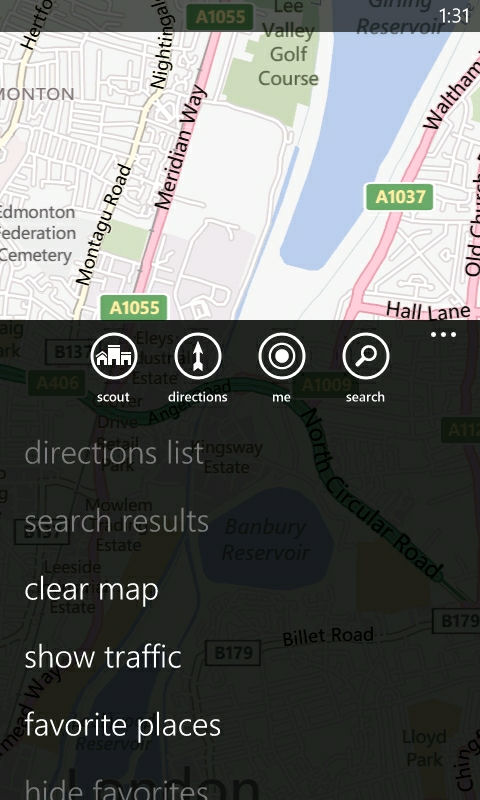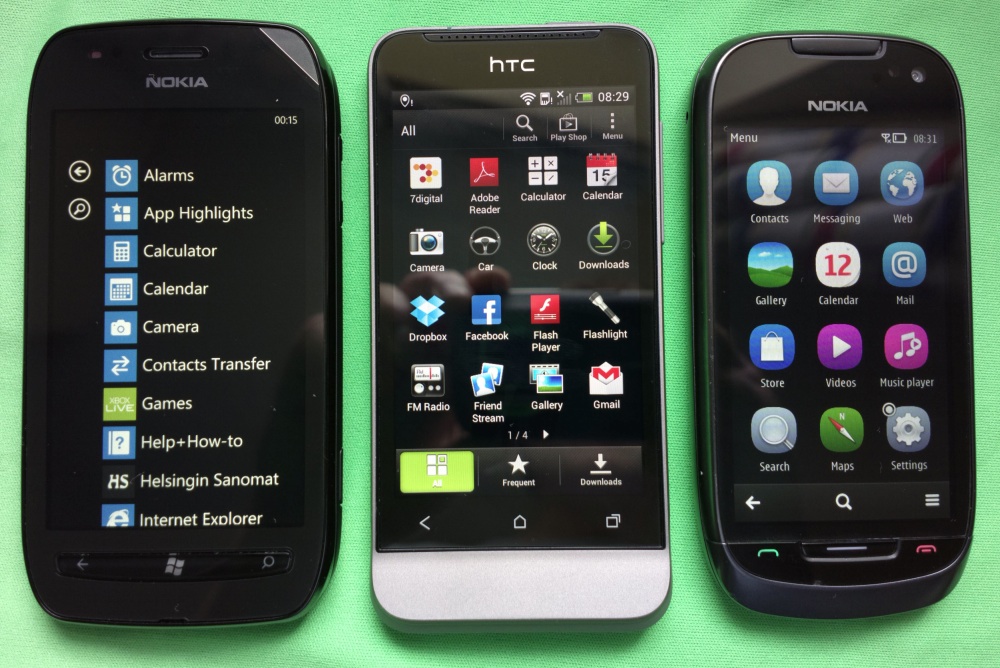The list echoes many points raised by 'power users' of other platforms, such as her reasoning around Nokia Maps, and why its inclusion makes it easier to consider a Windows Phone:
One of big reasons I haven’t been able to tear myself away from Android is Google Maps and Google Navigation. A smartphone without turn-by-turn GPS navigation doesn’t seem all that smart once you get used to having that functionality built into your phone. Now Microsoft has decided to integrate Nokia’s 3D mapping service into all Windows Phone 8 devices. Sounds as if one more of the things on my must-have list has been taken care of.
Here's the important thing - when you have a feature on phone 'A', you'll be looking to have this on phone 'B' (or some really good reasoning on why it's not there). Windows Phone 7 had a number of these gaps which stopped a lot of people making the switch.


Mapping on smartphones is a key consideration for many people.
This is especially true in the case of the Nokia Lumia 800. After a long run of Symbian-powered handsets carrying the flag as the leading Nokia smartphones, the Windows Phone-powered Lumia 800 was always going to be a tough sell. But lacking longstanding features such as USB mass storage, FM transmission and expandable memory (to name three) made that task even harder.
Putting aside the fact that Windows Phone can and still does a really good job of being a smartphone that gets the job done (and I've been a happy convert to Windows Phone since the summer of 2011), the prevailing opinion of Windows Phone 7 and 7.5 is one of "there's too much missing for me to even consider the handset".
Which is where Windows Phone 8 really needs to deliver.
A lot of weight has been put into potential sales to people who do not yet have a smartphone, but bringing over existing users and having them switch to Microsoft's platform is just as important, because these people will be more likely to influence others, be it online and in the media or in their own social circles. That's why having a features list that matches another platform is important, that's why having similar specifications in hardware is a key message to the mainstream market, and that's why there's a sense of excitement around Windows Phone 8.
There's no point pushing ahead with fantastic new features and ideas if people pick up the handset and go "where does the memory card fit in?" Multitasking, for third party applications in the traditional sense of the term, is another area that has been contentious (see also David's primer on this). It's no good having a smart reason for designing the handset without a feature that the majority of buyers expect to have.

Do all these handsets have the same base functionality?
You can make compromises like that if you are a boutique manufacturer. A quick example from the automotive world. Ferrari are not Ford; expensive sports cars can be forgiven bad handling and low miles per gallon, and sell to a small group of enthusiasts, but if you want a huge volume of sales, then you have to design and build for the mass market.
That's where Windows Phone 8 needs to be. It needs to be addressing the mass market. And that means, at least for me, that the upcoming release doesn't need to have lots of bells and whistles, flashy features, or cutting edge technology, it needs to get every single one of the basics right. It needs to be a platform that has no obvious showstoppers if it wants to significantly increase its market share. And it needs everyone to understand that the platform is not compromised when compared to the current handset in someone's pocket.
The recent Windows Phone Summit showed us some of the changes that are being made by Windows Phone 8, but not enough to gauge if all the gaps are going to be filled. That's why there are a lot of people looking at every scrap of detail, from legal filings in patent cases to leaked SDKs and screenshot capabilities. They want, almost need, to know that the new phones will do everything their current phone can do. The basics need to be covered, and we're hoping that Microsoft are doing that with Windows Phone 8.
